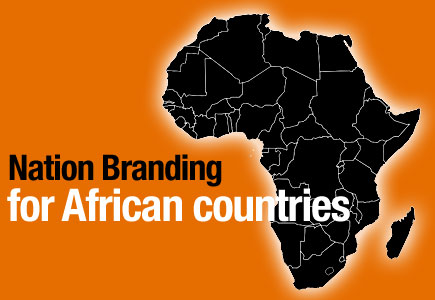Elite Marketing Business Consulting Blog
Is Africa gearing up to be the next Asian Tiger?
by Ernest Umunna on 09/06/11
Africa is on the move. Africa's economic rhythm has quickened, infusing the continent with a new commercial vibrancy. Strong prospects await global companies that invest in the continent's consumer, agricultural, natural resource, banking, telecommunication, retailing, and infrastructure sectors. Africa's economic growth is creating substantial new business opportunities that multinational companies can no longer overlook. The emergence of regional economic powers such as the "African Lions" of Southern Africa, the "African Elephants" of East and Central Africa, and the "Niger River Giants" of West Africa are attracting the attention of the Asian, North and South American, and European investors.
The rise of the African urban consumer and Africa's long-term growth are increasingly reflecting interrelated social and demographic changes and creating new domestic engines of growth. Key among these will be urbanization, an expanding labor force, and the rise of the middle-class African consumer. Each African country will follow its own growth path based on opportunities and challenges, and level of economic diversification.
In 1980, just 28 percent of Africans
lived in cities. Today, 40 percent of the continent's one billion people live
in cities. This proportion is roughly comparable to China's and larger than
India's. By 2030, that share is projected to rise to 50 percent, and Africa's
top 18 cities will have a combined spending power of $1.3 trillion. Africa has
six of the world 10 largest growing economics. Africa has new class of
businessmen and businesswomen that are young and often western educated, and
they are stirring things up.
Why the Web Is Useless in Developing Countries-And How to Fix It
by Ernest Umunna on 02/13/11
Mashable, February 05, 2011 Author: Sarah Kessler www.mashable.com
Steve Bratt has done the math on the potential of mobile phones. The United Nation's International Telecommunication Union estimated that at the end of 2010 there were 5.3 billion mobile phone subscriptions worldwide and that a full 90% of the world population now has access to a mobile network. In contrast, only about 2 billion people have Internet access.
The high prevalence of mobile phones (even in developing countries, penetration rates were expected to reach 68% by the end of 2010) has led many non-profits to choose mobile networks as tools for positive change. Mobile banking in Kenya has helped farmers increase their incomes, 300,000 people in Bangladesh signed up to learn English through their phones, and many consider mobile phones the key to developing nations.
But Bratt, now the CEO of The World Wide Web Foundation, came up with a different hypothesis when he looked at the 3.3 billion-person gap between mobile phone users and Internet users. Theoretically, he thinks that the two numbers could one day even out as people use their phones to log onto the Internet.
The problem is that for a person in a developing country, the current Internet is nearly useless.
Seizing Africa's business opportunity
by Ernest Umunna on 02/11/11
In the aftershock of the global financial crisis, Africa no longer seems uniquely risky. Africa sustained this crisis because most business financials are conducted on cash basis. The idea of operating business on a line of credit is still not part of the African business landscape, hence, the global financial crisis have minimal impact on the economy. Between 2001 and 2008, Africa was among the fastest growing part of the world with average growth of 5.6 percent a year. While the commodity boom played a role, stable macroeconomic conditions coupled with structural reforms, including the privatization of state owned enterprises and lowered barriers to competition reinforced the impressive growth. It was accompanied by large amounts of foreign direct investments, including inflows from the Gulf countries and from emerging countries of Asia (China, Korea, Japan and India), and Brazil. Resource-rich countries such as Nigeria and South Africa received most of the foreign direct investment during the decade, but new patterns have emerged in the last three to four years. In eastern and northern Africa, for example, new investments has arrived in non-resource sectors such as tourism, manufacturing, financial services, telecommunication, information systems, and construction. All of a sudden, the world can no longer see Africa's economy as extractive. In addition, a second tier of smaller but high-performing countries, including Ghana, Namibia, and Zambia, has caught investor's attention.

















